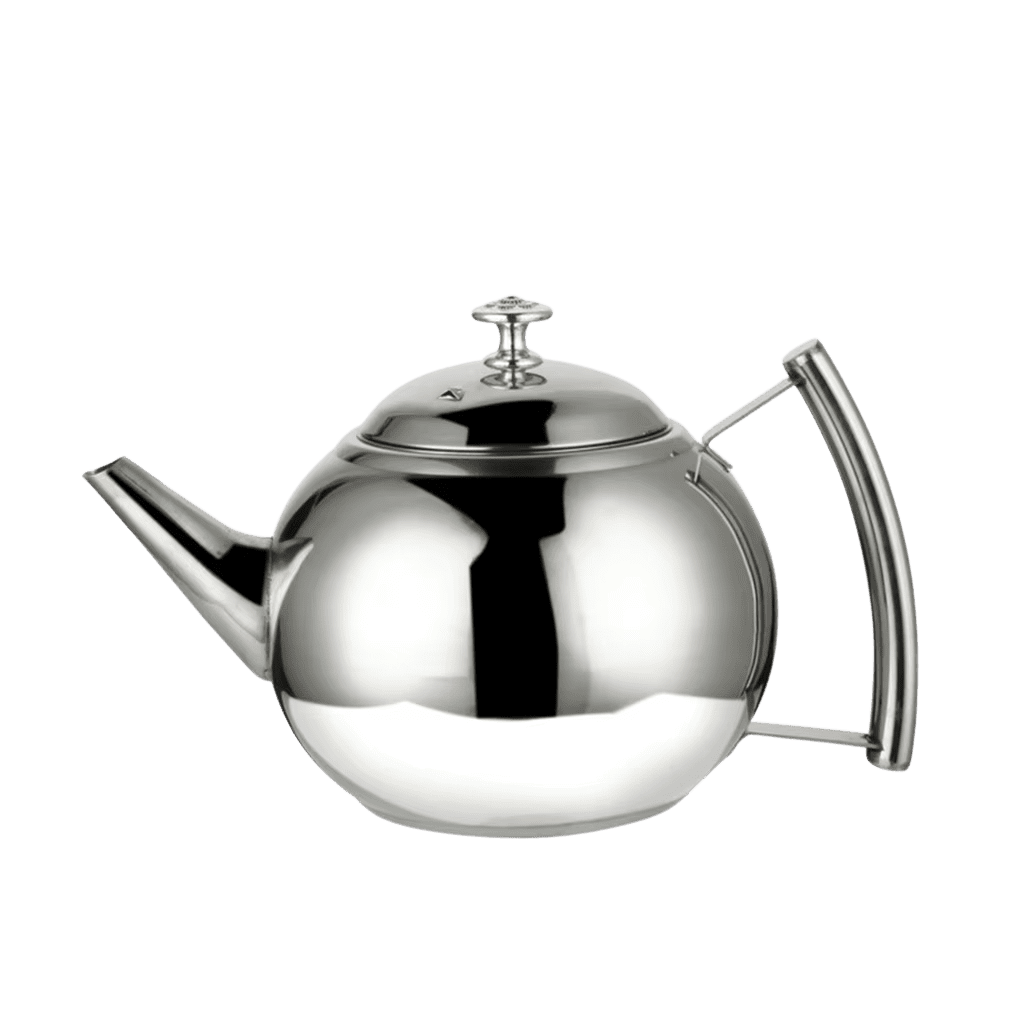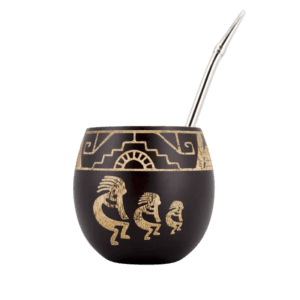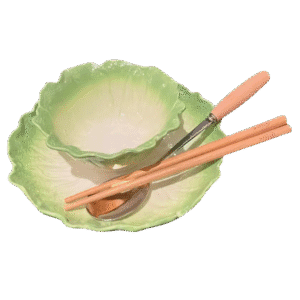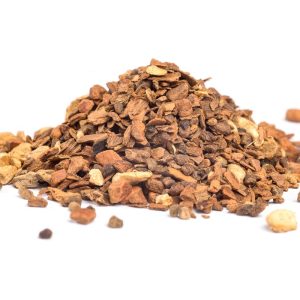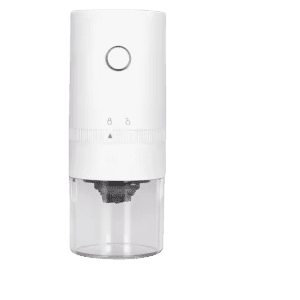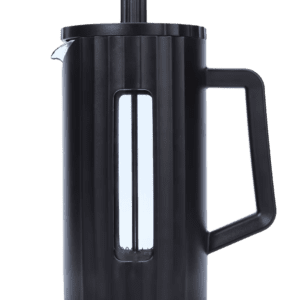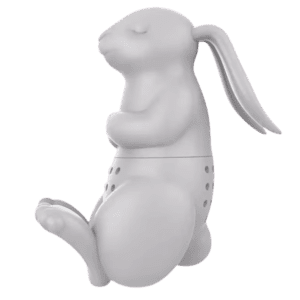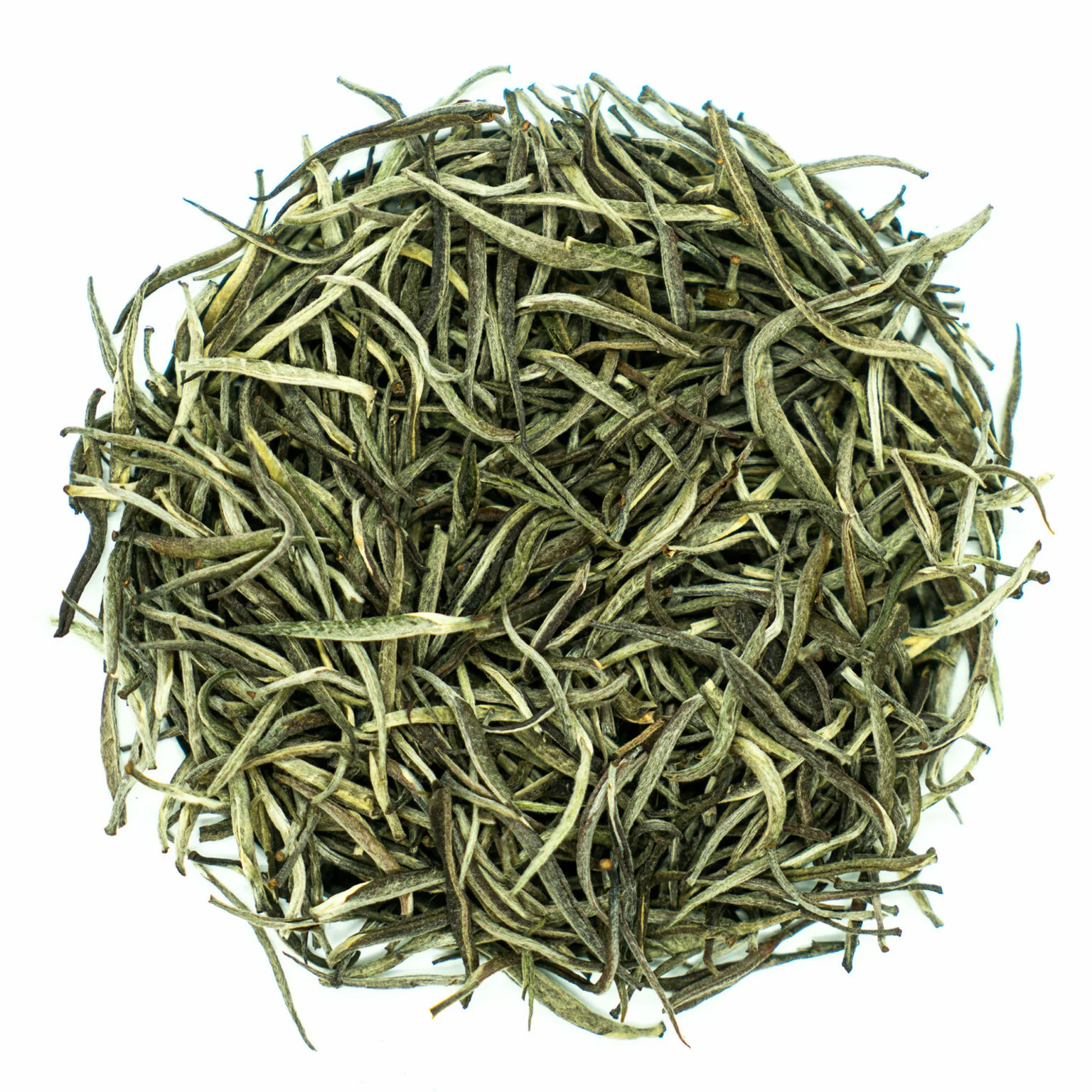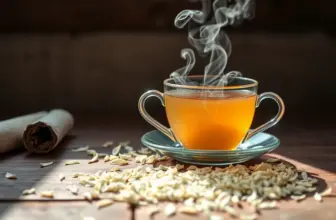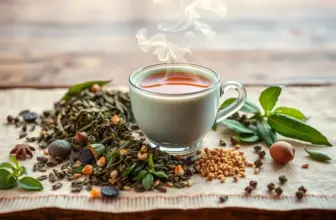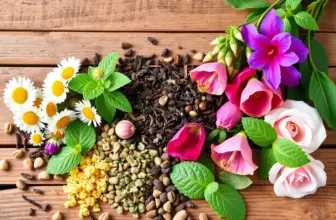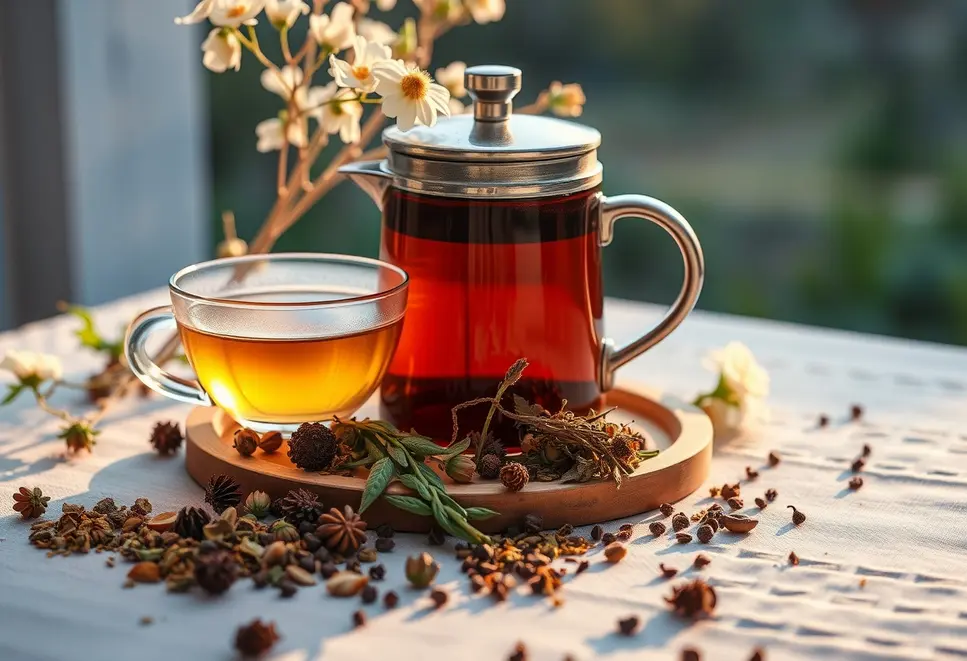
Spis treści
Wstęp
Każdy z nas zna ten moment, gdy po intensywnym dniu potrzebujemy relaksu i spokojnego snu. Tutaj na scenę wkraczają ziołowe herbaty, które od wieków przynoszą ulgę w stresie i pomagają zasnąć. Odpowiednia mieszanka ziół takich jak kozłek lekarski, melisa, passiflora, chmiel, lawenda, rumianek i kwiat lipy może zdziałać cuda. Poznajmy, jak szczegółowo te składniki wspierają naszą wieczorną rutynę i zdrowy sen.
Rozdział 1: Understanding Valerian Root in the Best Herbal Teas for a Calm Sleep – Evening Blends

1. Valerian Root’s Impact on Faster Sleep Onset: Exploring Herb’s Efficacy
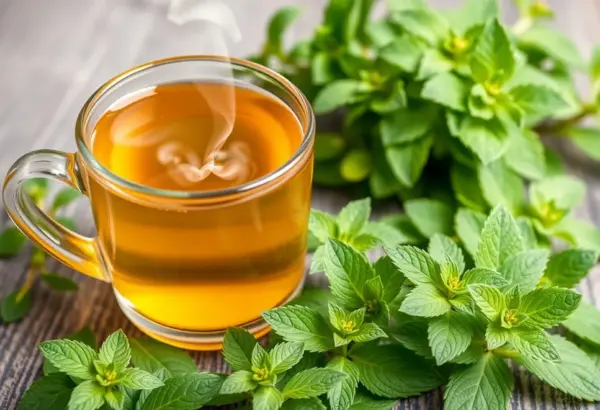
Valerian root is a prominent component in evening herbal blends due to its capacity to promote faster sleep onset. Its effectiveness lies in active compounds such as valerenic acids, which interact with the body’s sedation pathways to hasten the transition into sleep. Valerian specifically targets the neurotransmitter GABA, which plays a crucial role in calming the nervous system and reducing the time it takes to fall asleep. When blended with lemon balm, valerian enhances its soothing effects, providing substantial relief even to those experiencing delayed sleep onset despite feeling fatigued. This combination has proven particularly beneficial for menopausal women, improving their sleep quality without the side effects commonly associated with pharmaceuticals like diazepam. The European Medicines Agency acknowledges the use of valerian root as a traditional remedy for mild insomnia, highlighting its safety and efficacy. For those looking to enhance their evening relaxation, valerian-infused teas are an ideal choice. Learn more about valerian’s comparative efficacy. You may also explore suggestions for relaxation teas here.
2. Analiza Anksjolitycznych Efektów Korzenia Kozłka Lekarskiego w Herbacie na Spokojny Sen – Ziołowe Mieszanki wieczorne
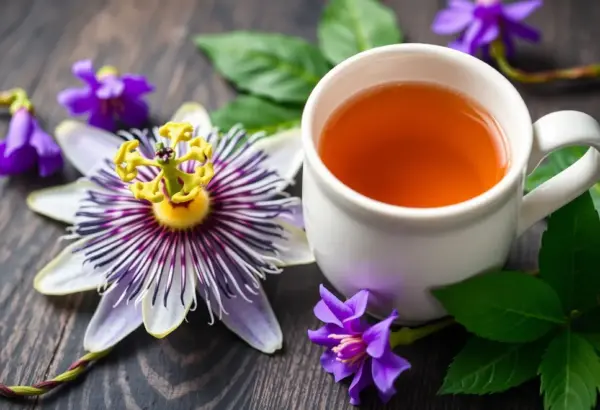
Korzeń kozłka lekarskiego, znany z działania anksjolitycznego i uspokajającego, odgrywa kluczową rolę w poprawie jakości snu. Jego zdolność do modulowania układu GABA, głównego neuroprzekaźnika o właściwościach uspokajających, pomaga redukować lęki i napięcie. Dzięki temu kozłek nie tylko ułatwia zasypianie, ale także zwiększa głębokość snu bez efektów porannych „zawieszeń”, typowych dla farmaceutycznych środków nasennych. Istniejące badania naukowe potwierdzają, że kozłek skraca czas zasypiania i poprawia jakość snu, szczególnie w połączeniu z chmielem. Mimo że dowody naukowe są umiarkowane, tradycyjne zastosowanie kozłka znajduje odzwierciedlenie w mieszankach ziołowych. Więcej informacji można znaleźć tutaj.
Rozdział 2: Ukojenie i Relaks z Melisą w Ziołowych Mieszankach na Wieczór
1. Kojący Wpływ Melisy na Jakość Snu i Stan Relaksacji
Melisa, znana ze swoich kojących właściwości, jest kluczowym składnikiem ziołowych mieszanek przeznaczonych na spokojny sen. Zawiera związki takie jak eugenol i kwas rozmarynowy, które działają uspokajająco i antyoksydacyjnie. Regularne spożycie melisy może znacząco redukować lęk, depresję oraz problemy związane ze snem. Melisa pomaga rozluźniać układ nerwowy, co czyni ją popularnym wyborem w herbatach wieczornych, zapewniając spokojny sen poprzez poprawę jego jakości i długości. Oprócz właściwości uspokajających, melisa może także łagodzić nerwowy żołądek, co jest korzystne po posiłkach. Tradycyjnie stosowana w formie naparu lub nalewki, melisa wspomaga naturalne przygotowanie organizmu do snu. Więcej o innych herbatach relaksacyjnych znajdziesz tutaj.
2. Digestive Harmony: The Unique Role of Lemon Balm in Soothing Sleep Teas
Lemon balm, with its citrusy aroma, is not only a soothing agent for the mind but also a powerful ally for the digestive system. In evening herbal teas, it acts to improve digestion by stimulating bile production, facilitating the breakdown of fats, and reducing bloating. This contributes to a more comfortable digestive experience, making it easier for the body to relax before bed. Furthermore, lemon balm’s ability to calm the digestive tract muscles helps alleviate mild discomfort like gas and indigestion. Such properties, combined with its anti-inflammatory and antioxidant effects, create an environment conducive to a healthy gut microbiota. Notably, its antimicrobial effects further bolster digestive health. As a part of herbal blends aimed at promoting peace and calmness, lemon balm ensures that not only does the mind unwind but the body prepares itself for restful sleep. Read more about the preparation and benefits of lemon balm tea.
Rozdział 3: Discovering the Night-time Serenity: How Passionflower Elevates Najlepsze Herbaty na Spokojny Sen
1. Unlocking Restful Nights: Passionflower’s Natural Sleep-Enhancing Power
Passionflower plays a crucial role in enhancing sleep quality through its calming effects on the nervous system. By increasing levels of GABA (gamma-aminobutyric acid) in the brain, it effectively mitigates anxiety and stress, allowing for a quicker onset of deep, satisfying sleep compared to conventional medications, which often result in grogginess. The active compounds—alkaloids and flavonoids—offer relaxing properties that have been traditionally harnessed to combat nervousness and sleep disorders. Moreover, passionflower’s calming effects are often likened to benzodiazepines but with fewer side effects, making it a favored ingredient in herbal blends like those highlighted in herbaty na relaks i spokojny sen. Coupled with other relaxing herbs, passionflower ensures a harmonious night’s rest, supported by scientific insights into its neurochemical benefits (source).
2. Synergistic Power: Blending Passionflower with Valerian and Lemon Balm for Restful Evenings
Passionflower stands out as a crucial ingredient in herbal blends aimed at promoting relaxation and sleep. When combined with valerian and lemon balm, its effects are enhanced, creating a more potent sedative mixture. Passionflower includes active compounds like flavonoids and harmala alkaloids, which help balance neurotransmitters such as GABA, calming the nervous system. Valerian, known for its potent sedative qualities, and lemon balm, with its mild anti-anxiety benefits, complement passionflower perfectly. Together, these herbs reduce anxiety and nervous tension, fostering a tranquil state conducive to sleep. Preparing an evening tea using these herbs involves steeping them in boiling water for optimal results. It’s advisable to consume this tea in a calm environment, aiding its effectiveness in transitioning the mind into a restful state. For further insights, explore Passionflower Infusion: Understanding Its Calming Effects and Preparation Techniques.
Rozdział 4: Hops’ Calming Influence in Nighttime Herbal Infusions for Peaceful Sleep
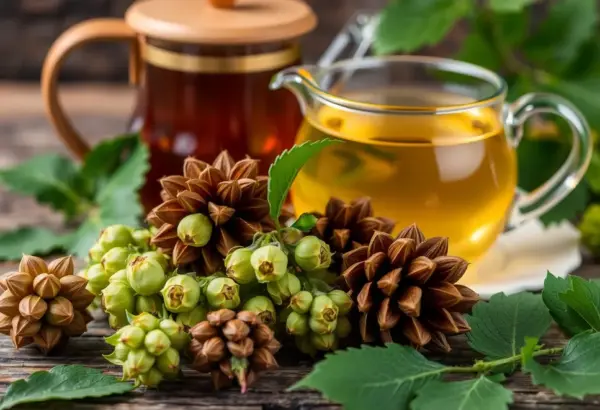
1. The Remarkable Calming Properties of Hops in Evening Herbal Teas
Hops, known for their calming and mild sedative effects, play a pivotal role in herbal teas designed for a restful sleep. Containing bioactive compounds like humulone and lupulone, hops interact with brain GABA receptors, promoting a state of relaxation and enhancing sleep quality. Clinical studies have demonstrated that when hops are combined with valerian root, they can extend sleep duration by an average of about 21.7 minutes, offering a natural solution for occasional insomnia without affecting cognitive function. Historically, hops were recognized by 15th-century German monks who recommended them for enhancing tranquility and facilitating sleep through herbal brews. Modern blends often incorporate hops with other calming herbs to maximize effects, making them a consistent ingredient in relaxing evening teas. For more on the soothing qualities of hops in herbal teas, visit herbalreality.com.
2. Synergiczne Działanie Chmielu i Innych Ziół dla Głębokiego Relaksu
Łączenie chmielu z innymi ziołami, takimi jak czaszka, rumianek, tulsi, oraz adaptogenami, to sprawdzona metoda dla uzyskania głębokiego relaksu przed snem. Chmiel zawiera naturalne związki uspakajające, które promują uczucie spokoju, a działanie te jest wzmacniane przez zioła wspierające. Czaszka łagodzi stres i drażliwość, podczas gdy rumianek i tulsi uwalniają napięcie mięśniowe, kojąc umysł. Dzięki synergii, napary te działają harmonijnie, oferując kojący efekt bez skutków ubocznych. Dodanie adaptogenów, takich jak ashwagandha, dodatkowo wzmacnia układ nerwowy, przygotowując ciało do spokojnego snu. Regularne picie takich herbat, szczególnie podczas wieczornych rytuałów, sprzyja relaksacji i poprawia jakość snu. Więcej na temat relaksujących herbat
Rozdział 5: Relaksujące Działanie Lawendy jako Składnik Herbatek na Spokojny Sen
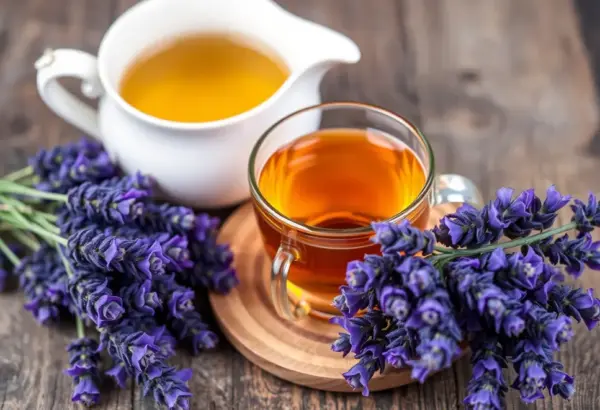
1. Biochemiczne Mechanizmy i Wpływ na Sen w 'Relaksujące Działanie Lawendy’
Lawenda, znana ze swoich uspokajających właściwości, zawdzięcza swój wpływ na sen kluczowym związkom bioaktywnym, takim jak linalol i octan linalylu. Substancje te, działając na centralny układ nerwowy, zmniejszają niepokój, indukują sedację i poprawiają jakość snu. Ich lipofilowy charakter umożliwia przechodzenie przez barierę krew-mózg, co pozwala na wywieranie efektów uspokajających porównywalnych z niektórymi farmaceutykami, ale z mniejszą ilością skutków ubocznych. Biochemicznie, linalol wspiera aktywność GABAergiczną, co redukuje pobudliwość neuronów i sprzyja relaksacji. Łagodzenie stanów zapalnych przez linalol dodatkowo wspomaga sen poprzez redukcję stresu fizjologicznego. Więcej na temat korzyści terapeutycznych lawendy można znaleźć w kompleksowym przeglądzie na temat jej działania.
2. The Gentle Embrace of Lavender: Aromatherapy and Tradition in a Night’s Rest
Lavender, with its storied past in both aromatherapy and herbal medicine, offers a gentle path to relaxation. Traditionally, its essential oil, rich in compounds like linalool and linalyl acetate, has played a key role in calming practices. These compounds work harmoniously with the brain’s neurotransmitters, alleviating anxiety and promoting a serene mood. Historical applications range from aromatic teas and soothing baths to direct inhalation, each method harnessing lavender’s power to ease stress. Clinically, the inhalation of lavender oil before sleep enhances the stages of deep sleep, making nights more restful and restorative. Common practices, like diffusing lavender or blending it with other calming oils such as cedarwood, further emphasize its role in promoting sleep. The efficacy of lavender as a calming agent is well-supported by both ancient tradition and modern science, providing a natural solution for stress relief and improved sleep quality. For more insights into lavender’s uses and benefits, explore Lavender benefits for sleep and anxiety.
Rozdział 6: Chamomile and Linden: Serenity in Herbal Teas for Tranquil Sleep
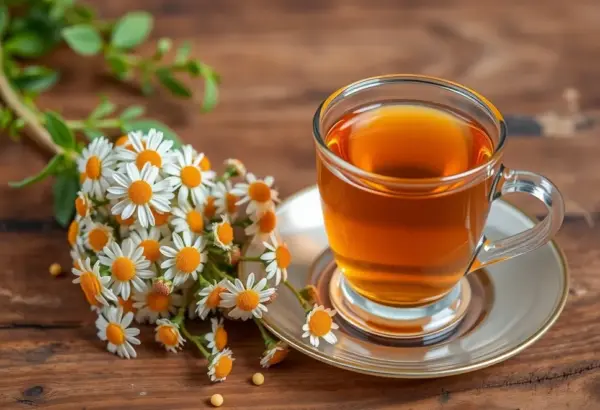
1. Chamomile’s Calming Influence in Herbal Sleep Teas – A Study
Chamomile holds a pivotal role in enhancing sleep quality due to its sedative effect, largely attributed to the flavonoid apigenin. This compound engages with GABA receptors in the brain, akin to common anti-anxiety drugs, fostering relaxation and alleviating anxiety before sleep. Clinical evidence supports chamomile’s efficacy in enhancing sleep; a study in 2016 observed notable improvements in sleep efficiency among postpartum women who consumed chamomile tea over two weeks, and a 2017 trial indicated similar benefits in the elderly. Furthermore, chamomile aids in stress reduction by lowering cortisol levels, making it not only a natural remedy for restlessness but also a promoter of emotional equilibrium. For more on the benefits of herbal teas, visit Akademia Herbaty’s blog on teas for relaxation.
2. Lipa i Jej Wpływ na Najlepsze Herbaty na Spokojny Sen – Analiza Relaksujących Właściwości Herbaciarskich
Lipa odgrywa istotną rolę w ziołowych herbatach na spokojny sen dzięki swoim łagodnym właściwościom uspokajającym i relaksującym. Kwiaty lipy są znane z delikatnego działania przeciwzapalnego, które wspomaga odprężenie i zmniejsza stres, co przekłada się na poprawę jakości snu. Naturalne związki zawarte w lipie działają jak łagodne środki uspokajające, nie powodując znaczących skutków ubocznych, co czyni je odpowiednimi nawet dla dzieci. Lipa jest często łączona z miętą, różą lub rumiankiem, by wzmocnić kojący efekt naparów. Dodatkowym atutem są jej właściwości łagodzące problemy z układem oddechowym i bóle głowy. W herbatach na spokojny sen, lipa wspomaga naturalne wyciszenie układu nerwowego, co zbiega się z tradycyjnym wykorzystaniem jej naparów jako środka nasennego w medycynie ziołowej. Aby dowiedzieć się więcej o ziołach wspierających relaksację, odwiedź Herbaty na relaks i spokojny sen – najlepsze wybory na wieczór.
Podsumowanie
Ziołowe herbaty na spokojny sen oferują tradycyjne i skuteczne rozwiązanie dla tych, którzy pragną uspokoić umysł przed snem. Każdy z wymienionych składników, od kozłka lekarskiego po rumianek i kwiat lipy, ma swoje unikalne właściwości, które razem tworzą idealną mieszaninę dla zdrowego, regenerującego snu.
Sprawdź nasze mieszanki herbaciane w sklepie.
O nas
Akademia herbaty to świetne herbaty w przystępnych cenach, oferujące różnorodne mieszanki, które wspierają zdrowie i relaks.
